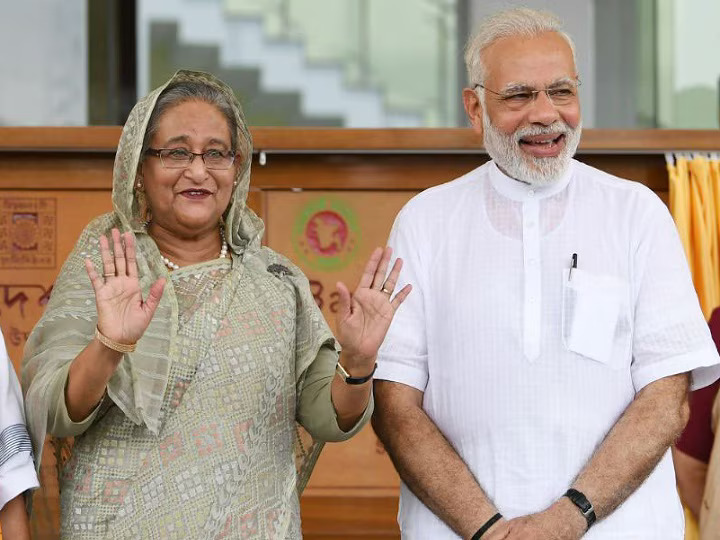Bangladesh’s Prime Minister Sheikh Hasina has taken a significant step to reduce her country’s dependence on China. Recently, after abruptly ending her trip to Beijing and returning to Dhaka, she clearly announced that she wants the $1 billion Teesta River development project in Bangladesh to be carried out by India instead of China. Speaking to journalists, Sheikh Hasina said, “China is ready, but I want this project to be done by India.”
Policy of Prioritizing India
Prime Minister Hasina mentioned that China has proposed and conducted a feasibility study. “India has also made a proposal and will conduct a feasibility study as well. After that, we will decide what is appropriate. But I want this project to be done by India because India has blocked the water supply of the Teesta,” she said.
Hasina believes that if India is expected to provide water from the Teesta River to Bangladesh, it should also take responsibility for implementing the development project. This would ensure that Bangladesh receives the essential water supply it needs, fostering cooperation and addressing water scarcity issues more effectively between the two nations.
Importance of the Project and Political Background
The Teesta River is crucial for Bangladesh’s agriculture and water supply. Its development has been delayed for many years, despite being a recurring promise in the ruling Awami League party’s manifesto. This project’s completion is essential for addressing water scarcity and boosting economic growth in northern Bangladesh.
During Prime Minister Hasina’s visit to New Delhi in June this year, the Teesta project was a major topic of discussion with Indian Prime Minister Narendra Modi. This project, crucial for water management in Bangladesh, had been a long-standing issue between the two countries.
Modi assured Hasina that India was committed to finding a resolution and announced that an Indian technical team would soon visit Dhaka. The team’s objective would be to collaborate on the conservation and management of the Teesta River, ensuring a fair distribution of water resources and addressing Bangladesh’s concerns about water scarcity. This assurance highlighted India’s willingness to strengthen bilateral relations and work together on critical issues.
Teesta River and India-Bangladesh Water Agreements
India and Bangladesh share around 54 rivers, with the Teesta being one of them. However, the Teesta is the only transboundary river for which a water-sharing agreement has not been reached between the two countries. The main reason for this has been objections from the government of West Bengal. Under the Indian Constitution, the consent of state governments is mandatory for such water agreements.
In 2011, a draft agreement on the Teesta water-sharing was prepared, but it could not be signed due to opposition from West Bengal’s Chief Minister Mamata Banerjee. Banerjee claimed that this treaty would lead to drought in some parts of the state.
China’s Role and Security Concerns
While India was delaying in resolving this issue, China attempted to move forward with its proposal. Earlier this year, India raised security concerns, stating that if China was given this project, Chinese engineers would be working near India’s border. Consequently, New Delhi also proposed its own plan for the Teesta project to Bangladesh.
Conclusion
Prime Minister Sheikh Hasina’s decision to have the Teesta River development project implemented by India instead of China is a significant diplomatic move. It not only reflects a major shift in Bangladesh’s foreign policy but also strengthens relations with India.
This decision is crucial for Bangladesh’s long-term water resource management and regional security. Sheikh Hasina’s growing trust in India and distancing from China marks an important turn in Bangladesh’s diplomatic direction, which could have a profound impact on the relationship between the two countries in the future.
ALSO READ: “Arvind Kejriwal might go into a coma”, said Sanjay Singh. But Why?
